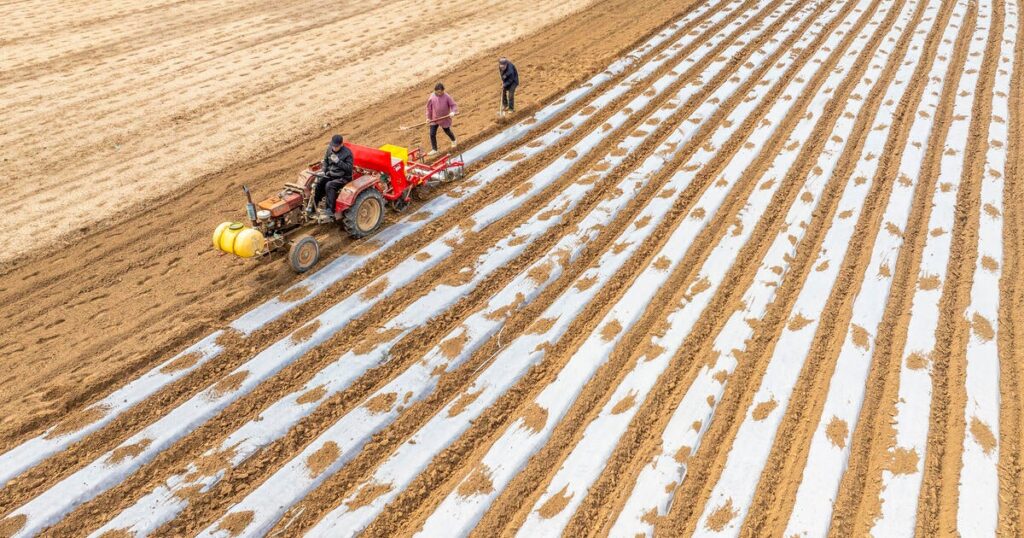China’s retaliatory tariffs went into effect Monday, spelling trouble for American farmers by making U.S.-grown crops more expensive for their top purchaser.
Beijing imposed the levies in response to President Trump’s extra 10% blanket tariff on Chinese goods. Under China’s retaliatory action, U.S. farmers now face levies of 15% on chicken, wheat and corn, and 10% on soybeans, pork, beef and fruit.
China is the largest market for such products, and if prices of foreign-grown goods rise in China, locals will turn to less expensive alternatives either from China or other countries. American farmers that deal in chicken and more will likely lose market share as a result.
“If prices go up, folks won’t eat imported stuff,” a fruit seller, surnamed Shi, told Agence France-Presse. “There will be more domestic goods sold, and I think this is something folks can accept.”
Shi told the agency that if U.S. produce prices rise, he might seek out replacement fruit and vegetables from Thailand and Malaysia.
Goods that shipped before Monday and arrive in China before April 12 will not be subject to the new tariffs.
“A web of uncertainty”
Virginia-based farmer John Boyd Jr., president of the National Black Farmers Association, told CBS MoneyWatch that Mr. Trump’s trade conflict with China hits farmers like himself hard.
For one, Mr. Trump’s earlier flip-flopping on his tariff policy vis-a-vis Mexico and Canada “has cast a web of uncertainty around agriculture,” Boyd told CBS MoneyWatch. “You are really shaking at the root of all the major commodities that we produce in the U.S., because we are a market-driven industry.”
Farmers are bearing the brunt of the effects of a trade war with key U.S. trade partners, Boyd added. “The president is using American farmers to bargain with, but at the end of the day, we are the ones that are hurting.”
Nick Levendofsky, executive director of the Kansas Farmers Union, told CBS MoneyWatch that the industry had anticipated that Mr. Trump would impose levies on key U.S. trade partners, but that there wasn’t a whole lot the farmers he represents could do to prepare.
“Of course, agriculture products are subject to the retaliatory tariffs, and farmers tend to be the ones that get it first and hardest in a trade war; we take the brunt of this and get a black eye or busted nose,” Levendofsky told CBS MoneyWatch.
He explained that farmers across the U.S. are grappling with high input costs, including the price of seeds, fertilizer, chemicals, fuel and equipment costs needed to run their farms. Meanwhile, commodity prices are low.
“This trade war and these tariffs adds to that very stressful time and does not help the farm economy. When farmers aren’t making money, they are not spending money and that directly ripples across the rural economy,” he said.
Megan Cerullo is a New York-based reporter for CBS MoneyWatch covering small business, workplace, health care, consumer spending and personal finance topics. She regularly appears on CBS News 24/7 to discuss her reporting.














